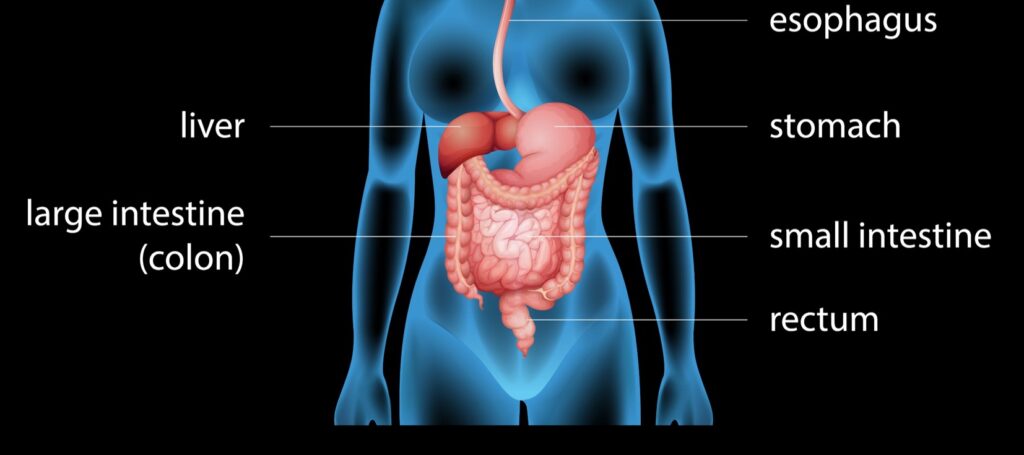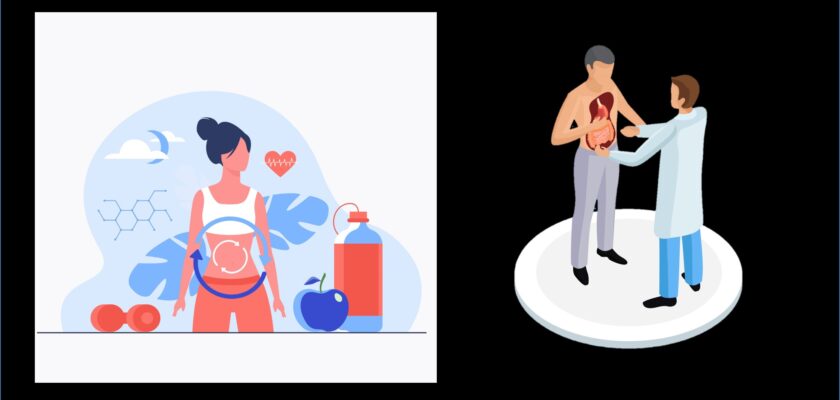A proctologist is a specialist who specializes in the diagnosis of problems with the colon, rectum, and anus, which are all parts of the human digestive tract.
However, the term “proctologist” is a little out of date. Where nowadays it is ideally called a ” colon and rectal surgeon” or “colorectal surgeon”.
Gastroenterologists, often known as gastroenterologists, collaborate closely with proctologists to provide comprehensive therapy for digestive system diseases.
A gastroenterologist has been trained in colonoscopy, however, they do not do surgery while all proctologists surgeons.
When to See a Proctologist?
If you are having any health issues you are required to consult a physician. You may choose to ask a proctologist for irritation concerning the rectal and anal areas such as:
- Burning or itching sensation near the anus.
- Experiencing some change in stool or bowel habits.
- Some object in rectum.
- Having pain in anus.
- Having bumps or warts near the anal area.
- Bowel incontinence.
- Bleeding from the anus.
Issues involving your rectum, anus, and gastrointestinal tract can be a touchy subject. However, do not be over-concerned, the colorectal surgeon performs this all day, every day.
It is necessary for a colorectal surgeon (or any surgeon/doctor) to know the full scope of your problems. If they do not understand then it will get tougher to diagnose you and identifying which treatments, you need for your problems.
That is why speaking freely with your colorectal surgeon (or any surgeon/doctor) is so important. Otherwise, you risk undergoing pointless testing or having a delayed diagnosis and treatment. This can have a negative influence on your health.
What is the Work of a Proctologist?
Proctologists address the following conditions commonly:
Anal skin tags: Painless skin growth near the anal area, it can be called skin tags.
Rectal prolapse: A situation wherein the rectum is freed by the anal hole.
Irritable bowel syndrome (IBS): A disease that leads to constipation, discomfort, diarrhea, and bloating.
Colon polyps: Small, benign clusters of colon development that can become malignant.
Rectal and anal cancers.
Diverticulitis: Small pouches (diverticula) occur in weak places in the intestinal system because of this illness.
A collection of chronic conditions, such as Crohn’s disease and ulcerative colitis, that induce intestinal lining inflammation.
Hemorrhoids: Itching, discomfort, and bleeding are all symptoms of swollen or heated veins in the anus or lower rectum.
Anal fissures: Having a small tear in the anal lining.
Abscesses: Area where the pus from an infection is collected.
Sexually transmitted infections (STIs): The following infections can affect the genital and anal areas:
- Gonorrhea
- Genital Herpes
- Chlamydia
- Syphilis

What treatments do proctologists perform?
In addition to operations, proctologists conduct a variety of diagnostic and therapeutic procedures. Proctologists use these devices that go through your anus into the rectum and colon to get to know the patient’s problems.
These tools are equipped with illuminated cameras that aid in the visualization of the colorectal route and can also be utilized to implant instruments for treatment activities.
- Endorectal ultrasound: This is an imaging test used to aid in the examination of colorectal cancer.
- Surgery: Surgery can be conducted using less invasive procedures such as laparoscopy.
- Proctoscopy: Assess the anus as well as the lower section of the rectum.
- Digital rectal exam: At the time of physical examination doctors examines the lower rectum and prostate with their fingertips (with gloves on).
- Sigmoidoscopy: The doctor checks the lower section of your colon, known as the sigmoid colon, during this surgery.
- Anoscopy: This method aids in the detection of anus and rectum irregularities.
Read More – 15 Therapeutic Communication Techniques by Nurses
What is the Best Way to Find a Proctologist?
To discover a colorectal surgeon, ask your primary care physician or another healthcare professional for a reference. You can also use databases that allow you to search for information, such as American Board of Colon and Rectal Surgery & American Society of Colon & Rectal Surgeons.
When looking for a colorectal surgeon, keep the following points in mind:
- You should always look for the doctor’s past experience and the problem you are having currently are they similar.
- Will your colorectal surgeon is ready to share information with other doctors?
- You should be able to set up a consultation with your doctor before you have any operations done just to feel comfortable, as the operations are done in very sensitive areas?
- Does that doctor have any partnership with your healthcare provider?
- Does that doctor have a license to practice in your state?
- Is the doctor a board-certified physician? The Board certification tells that the doctor has taken the necessary educational training.
- Where is the doctor’s office located?
- Do they have admitting privileges at any hospitals?
It is really necessary, that you should feel comfortable with your colorectal surgeon. If you do not feel comfortable then you may not be able to talk freely to your doctor about your symptoms.
You are not obligated to work with them if they are dismissing or if you don’t like their interaction or treatment style. You are free to continue looking.
How Can I become a proctologist?
If you want to be a proctologist, then you need to take several years of education, as it is a highly specialized profession.
Because of the extremely personal nature of the symptoms they treat, proctologists must be especially sensitive and caring.
What is Require to Become a Proctologist?
4 years of the undergraduate degree.
4 years of medical education.
General surgery training for 5 years.
And 1 year of specialized training in colorectal surgery.
Certification from a government institute.
Conclusion
Consult your doctor if you experience problems such as anal or rectal pain, bleeding, or lumps. You can be referred to a colorectal surgeon for further assessment by your primary care physician or gastroenterologist.
Read More – Why Infants Need Paediatric Physiotherapy

